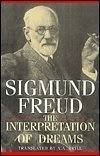
The Interpretation of Dreams Summary of Sigmund Freud's Book

The Interpretation of Dreams by Sigmund Freud: A Comprehensive Analysis
Sigmund Freud's groundbreaking work, The Interpretation of Dreams, published on January 1, 1899, remains a timeless classic in the fields of psychology, nonfiction, and philosophy. In this book, Freud delves into the mysterious world of dreams, exploring their significance and revealing hidden aspects of the human psyche. His theory about dreams as the doorway to the unconscious mind represents a revolutionary breakthrough in psychology, challenging traditional beliefs and paving the way for new discoveries.
Characters
In The Interpretation of Dreams, Sigmund Freud is the central figure, presenting his theories and interpretations of dreams. Freud's meticulous analysis and insightful observations make him a compelling character in the book. Other characters mentioned in the text include patients whose dreams Freud dissects to uncover the underlying meanings and symbols.
Detailed Summary
The book opens with Freud's assertion that dreams are the "royal road to the unconscious," emphasizing their importance in understanding the deepest desires and fears of individuals. He discusses the various aspects of dreams, such as manifest content (the literal events and images in dreams) and latent content (the hidden meanings and symbols behind them). Freud delves into the symbolism of dreams, exploring how they reflect unconscious wishes and conflicts.
Freud introduces the concept of dream analysis, outlining his method of interpreting dreams through free association and symbolism. He discusses the role of repression in shaping dreams, highlighting how unconscious desires manifest themselves in disguised forms. Freud also explores the significance of childhood experiences and memories in dream formation, illustrating how past traumas can resurface in dreams.
Throughout the book, Freud presents case studies of patients whose dreams he has analyzed, illustrating his theories in practice. He examines the recurring themes and symbols in their dreams, uncovering the underlying meanings and conflicts. Freud demonstrates how dreams serve as a window into the unconscious mind, revealing hidden desires and motivations that influence our thoughts and behavior.
Extensive Analysis
Freud's theory that dreams represent the fulfillment of unconscious wishes revolutionized the field of psychology, challenging traditional views of dreams as random or meaningless. By analyzing dreams through a psychoanalytic lens, Freud was able to uncover the complex interplay of conscious and unconscious processes in shaping our thoughts and behaviors.
One of the key aspects of Freud's theory is the role of repression in dream formation. According to Freud, unconscious desires that are deemed unacceptable or taboo are repressed into the unconscious mind, only to resurface in disguised forms through dreams. By deciphering the symbolic language of dreams, Freud believed that individuals could gain insight into their hidden motivations and conflicts.
Freud also emphasized the importance of childhood experiences in shaping adult dreams, highlighting how early traumas and conflicts can manifest themselves in symbolic form. Through his analysis of dreams, Freud sought to help patients uncover repressed memories and emotions, enabling them to achieve a deeper understanding of themselves and their psychological struggles.
Overall, The Interpretation of Dreams stands as a seminal work in the field of psychology, offering profound insights into the mysteries of the human mind. Freud's exploration of dreams as the gateway to the unconscious remains a landmark contribution to the study of human behavior and continues to influence contemporary psychological thought.
To conclude, The Interpretation of Dreams by Sigmund Freud is a must-read for anyone interested in delving into the complexities of the human psyche. This seminal work offers a provocative exploration of dreams and the unconscious mind, challenging readers to reconsider their understanding of themselves and the world around them.
If you enjoyed this summary, we encourage you to purchase the complete book or listen to the audiobook for a more in-depth exploration of Freud's groundbreaking theories.
9781566195768 (ISBN10: 1566195764)






Related Books